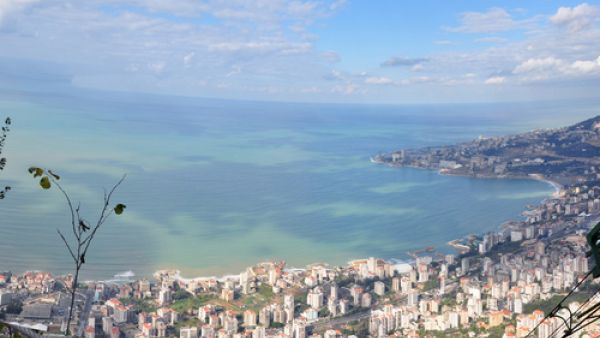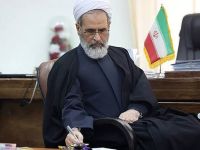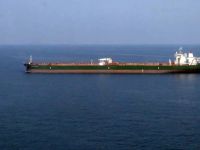Lebanon's new Cabinet got off to a flying start Wednesday, approving two long-awaited decrees that finally cleared the way for the first licensing round of offshore oil and gas exploration, overriding objections by MP Walid Jumblatt. The move, along with another decision to name a new head of the state-owned telecommunications company Ogero, were quickly hailed by Foreign Minister Gebran Bassil as “extraordinary achievements” by the Cabinet during its first session since it gained a vote of confidence from Parliament last week.
“This is an extraordinary start for the Cabinet,” tweeted Bassil, a former energy and telecoms minister.
The two long-awaited decrees on offshore oil and gas exploration topped the agenda of the Cabinet session chaired by President Michel Aoun at Baabda Palace.
“The Cabinet approved the two draft decrees pertaining to the delineation of sea waters falling under the jurisdiction of the Lebanese state into zones in the form of blocks, along with tender documents on the licensing rounds in sea waters and a model agreement on exploration and production,” Information Minister Melhem Riachi told reporters after the four-hour-long meeting.
He said that Education Minister Marwan Hamadeh and State Minister for Human Rights Ayman Choucair from Jumblatt’s Democratic Gathering bloc were the only two ministers in the 30-member Cabinet who voiced their objections to the passing of the two decrees.
The Cabinet formed a ministerial committee headed by Prime Minister Saad Hariri and comprised of the finance and energy ministers to study the taxation regulations related to oil and gas activities, Riachi said.
He added that another ministerial committee was formed headed by Hariri and included the ministers of finance, energy and planning to study a draft law pertaining to the oil resources in Lebanese territories.
Asked when Lebanon would be able to benefit from its oil wealth following the passing of the two decrees, Riachi said: “Efforts being made are meant for Lebanon to benefit from the oil production and oil wealth as soon as possible.”
As he entered the Cabinet session, Industry Minister Hussein Hajj Hasan joked with reporters, telling them: “Each one of you will get a barrel of oil.”
On the eve of the session, Jumblatt warned against rushing with the passing of the oil decrees, questioning whether the move would protect the country’s national wealth.
In practical terms, the two decrees will pave the way for the first licensing round of offshore oil and gas exploration in Lebanon’s Exclusive Economic Zone by designating the blocks that would be open for bidding. The decrees are necessary to set out the blocks that are up for auction and a revenue-sharing model.
Seismic studies carried out starting in 2013 have shown that Lebanon may possess trillions of cubic feet of oil and natural gas in its waters, a discovery that could boost international confidence in Lebanon’s economic future. Although more than six years have passed since the ratification of the Offshore Petroleum Resources Law, previous governments, plagued by political divisions, had failed to issue the decrees essential to kick off the first licensing round of offshore gas exploration.
Lebanon and Israel are also locked in a territorial dispute over a region of 870 square kilometers on the marine boundaries between the two countries. Both Lebanon and Israel claim ownership of that maritime area.
The Cabinet also appointed Imad Kreidieh, 56, with long years of telecoms expertise, replacing Abdel-Moneim Youssef, as new head of Ogero.
Bassel al-Ayoubi has also replaced Youssef as the director-general of investment and maintenance at the Telecoms Ministry. Youssef held both positions.
Youssef has been in the spotlight since last year, when corruption claims sparked doubts over his capability to run the state-owned company. In January 2016, Jumblatt’s Progressive Socialist Party filed a number of complaints against Youssef, mostly concerning payments he had received from the ministry. He was also accused over negligence after a number of unlicensed internet networks were found across the country in March. But Youssef has refuted the accusations, calling them politically motivated.
The Cabinet postponed discussions on the privatization of the country’s auto-inspection centers until a ministerial committee, headed by Hariri and comprised of the interior, justice, finance and economy ministers, studies the open public tender for the operation and modernization of the vehicle inspection centers, Riachi said. The Unions and Leagues of Land Transportation ended a three-month protest last month, urging the government to instead take control of the centers.
The Cabinet also approved a decree to organize the Directorate General of Civil Defense, in a move apparently aimed at permanently employing 2,500 volunteers.
Speaking to Al-Jadeed TV, Interior Minister Nouhad Machnouk said the Civil Defense volunteers would have to take Civil Service tests before they can be permanently employed.
Riachi said that the Cabinet also endorsed a decree pertaining to determining the expenses of the committee tasked with overseeing applications by Lebanese expatriates to regain Lebanese nationality.
Aoun, according to Riachi, told the ministers that he had agreed with Hariri to chair a meeting of the Higher Defense Council Thursday during which he will issue some instructions to the relevant security commands and outline the council’s work in light of the prerogatives assigned to it.
Addressing the session, Hariri proposed the formation of a ministerial committee to set guidelines for the Cabinet’s response during any emergency. The committee, comprised of the foreign, health and interior ministers, will remain in contact with the president and the prime minister when the need arises, Riachi said.
The proposal comes in light of the New Year’s Eve attack at a nightclub in Istanbul, in which 39 people, including three Lebanese, were killed by a gunman during a shooting spree claimed by Daesh (ISIS).
Hariri also called for the formation of a ministerial economic committee he had proposed in the previous Cabinet session to draw up a strategy to revitalize the battered economy.
Meanwhile, Speaker Nabih Berri called on rival politicians to quickly draft a new electoral law, saying proportional representation is the best system to help Lebanon’s transition into a modern state.
“A proportional law is the most appropriate and essential system to help Lebanon move to a stage of building a modern state that will ensure just national representation and fulfills the aspirations of the Lebanese,” a number of MPs quoted Berri as saying during his weekly meeting with lawmakers. He warned against “continued procrastination” in drafting a new vote law to replace the controversial 1960 majoritarian system.
By Hussein Dakroub








